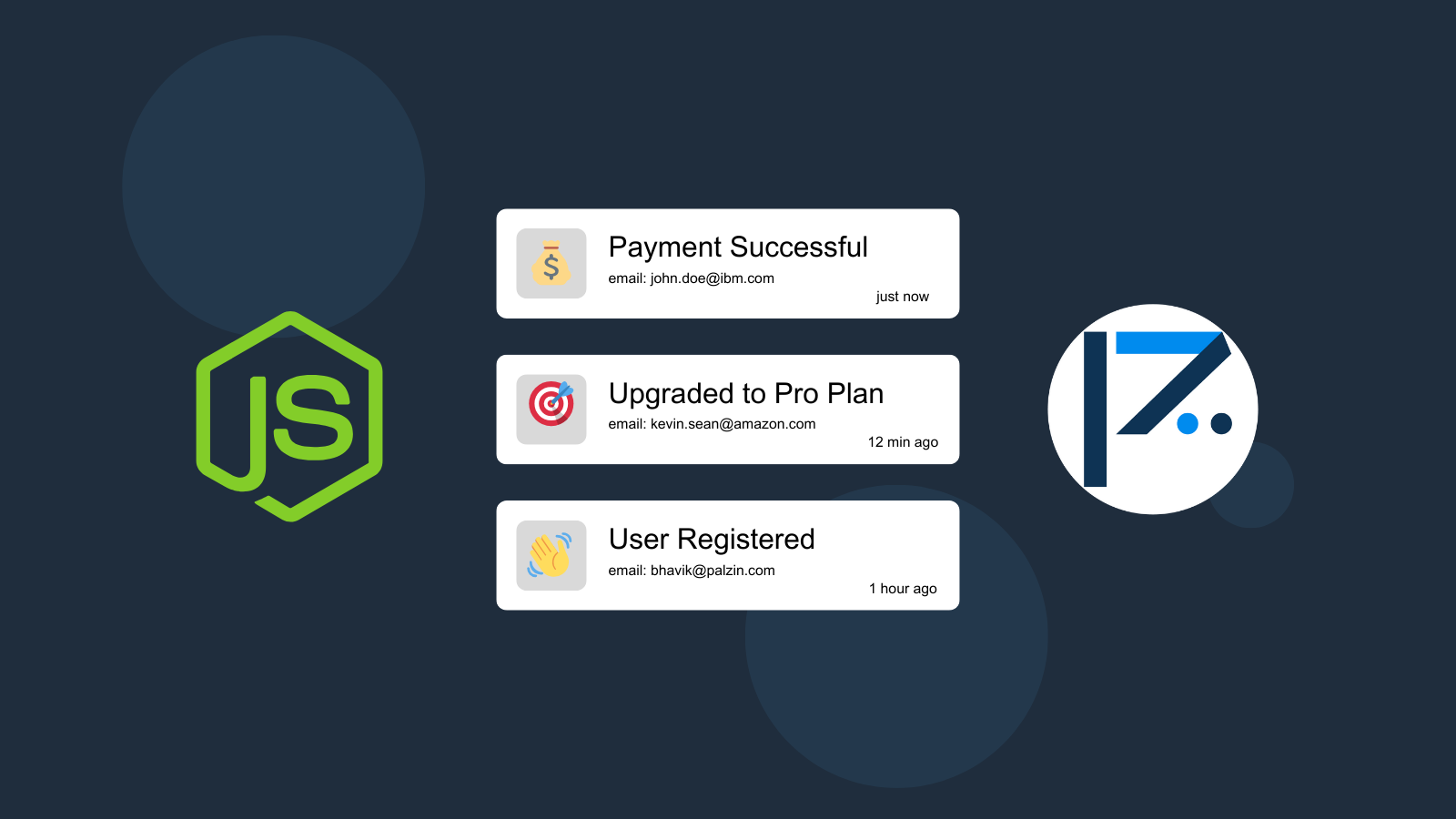
When developing a Nodejs application, it is essential to address performance considerations, as they play a crucial role in shaping the user experience. Performance issues are a common concern and can significantly impact the application's effectiveness. One of the most prevalent performance challenges faced by Nodejs applications is the occurrence of CPU-bound workloads. This situation arises when the application spends a significant amount of time waiting for the CPU to complete tasks.
In such instances, it becomes imperative to monitor the CPU usage of your Nodejs application and establish a tracking system to detect when the usage surpasses predefined thresholds. This approach ensures continuous awareness of your application's performance. In cases of performance degradation, such as when CPU usage exceeds specified thresholds, immediate action can be taken to rectify the issue before it escalates.
Thankfully, Palzin Track offers an effective solution to address these concerns. Palzin Track is a potent real-time event tracking tool that seamlessly integrates with Nodejs. With Palzin Track, you have the flexibility to set up event tracking for various aspects of your Nodejs application, including real-time monitoring of CPU usage. Furthermore, you can configure alert rules to promptly notify you and your team when CPU usage crosses designated thresholds. This proactive monitoring approach ensures that you remain well-informed about your application's performance and enables you to take swift action as required.
Connect Palzin Track to NodeJs
Use the following code snippet to track your CPU Usage with Palzin Track. Please don't forget to replace the YOUR_API_TOKEN with your API token and update the project and channel names.
Using NodeJs with Axios
var axios = require('axios');
var data = JSON.stringify({
"project": "my-project",
"channel": "status",
"event": "High CPU Usage",
"description": "CPI usage has been over 90% for the last 5 minutes",
"icon": "🚨",
"notify": true
});
var config = {
method: 'post',
url: 'https://api.palzin.live/v1/log',
headers: {
'Content-Type': 'application/json',
'Authorization': 'Bearer YOUR_API_TOKEN'
},
data : data
};
axios(config)
.then(function (response) {
console.log(JSON.stringify(response.data));
})
.catch(function (error) {
console.log(error);
});
Using NodeJs with Native
var https = require('follow-redirects').https;
var fs = require('fs');
var options = {
'method': 'POST',
'hostname': 'palzin.live',
'path': '/api/v1/log',
'headers': {
'Content-Type': 'application/json',
'Authorization': 'Bearer YOUR_API_TOKEN'
},
'maxRedirects': 20
};
var req = https.request(options, function (res) {
var chunks = \[\];
res.on("data", function (chunk) {
chunks.push(chunk);
});
res.on("end", function (chunk) {
var body = Buffer.concat(chunks);
console.log(body.toString());
});
res.on("error", function (error) {
console.error(error);
});
});
var postData = JSON.stringify({
"project": "my-project",
"channel": "status",
"event": "High CPU Usage",
"description": "CPI usage has been over 90% for the last 5 minutes",
"icon": "🚨",
"notify": true
});
req.write(postData);
req.end();
Using NodeJs with Request
var request = require('request');
var options = {
'method': 'POST',
'url': 'https://api.palzin.live/v1/log',
'headers': {
'Content-Type': 'application/json',
'Authorization': 'Bearer YOUR_API_TOKEN'
},
body: JSON.stringify({
"project": "my-project",
"channel": "status",
"event": "High CPU Usage",
"description": "CPI usage has been over 90% for the last 5 minutes",
"icon": "🚨",
"notify": true
})
};
request(options, function (error, response) {
if (error) throw new Error(error);
console.log(response.body);
});
Using NodeJs with Unirest
var unirest = require('unirest');
var req = unirest('POST', 'https://api.palzin.live/v1/log')
.headers({
'Content-Type': 'application/json',
'Authorization': 'Bearer YOUR_API_TOKEN'
})
.send(JSON.stringify({
"project": "my-project",
"channel": "status",
"event": "High CPU Usage",
"description": "CPI usage has been over 90% for the last 5 minutes",
"icon": "🚨",
"notify": true
}))
.end(function (res) {
if (res.error) throw new Error(res.error);
console.log(res.raw_body);
});
We believe that event tracking should be simple and accessible to every developer and team. Therefore, we have worked hard to create the next generation of event tracking tools. As a result, Palzin Track is flexible and easy to use, making it a great companion for your NodeJs applications.
In addition to real-time event tracking, Palzin Track provides powerful features such as cross-platform push notifications, event filtering, user and product journeys, charts, insights, and more.
Palzin Track provides a generous free plan to get you started with event tracking. You can also check out our pricing page to see our paid plans. So please give us a try and let us know what you think!
Palzin Track reveals the human stories behind your data. Make user-centric decisions that drive growth.